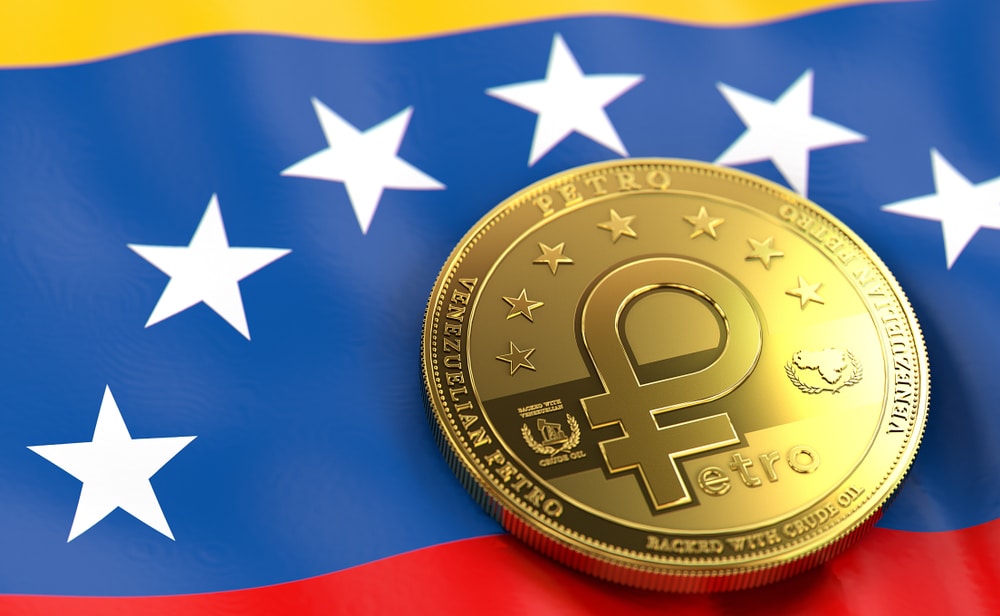The statement conveyed by the attorney general office confirmed the Venezuelan government was closing crypto mining facilities and exchanges. The update indicates the government is probing the oil operations. The national crypto department was facilitating corruption orchestrated by the civil servants within the national oil sector.
The communication conveyed by Venezuela’s energy sector indicated the closure of crypto mining operations would align with the country’s effort to reorganize the crypto department. Also, the shutdown would yield sufficient time to finalize the ongoing probe of corruption within the oil company.
Closure of Crypto Mining Farms and Exchanges
The statement published by the local media echoed updates issued by the crypto mining firms and the National Association of Cryptocurrencies (Asociación Nacional de Criptomonedas) regarding the immediate closure of mining operations within the Bolívar, Lara, and Carabobo states.
(Advertisement)
CypherMind-HQ.com Artificial Intelligence Crypto Trading System – Get Ahead of the Curve with this sophisticated AI system! Harness the power of advanced algorithms and level up your crypto trading game with CypherMindHQ. Learn more today!
The tweets first witnessed on March 25 hardly revealed the crypto firms affected by the crackdown by Venezuela’s authorities. Also involved in the crackdown are several crypto exchanges with those found guilty. The government is enforcing extreme actions with several crypto exchanges embroiled in the corruption saga directed to cease operations.
The sudden shutdown of mining facilities constitutes the national crackdown following the alleged involvement of officials of Venezuela’s PDVSA oil company officials and the crypto department. The reports circulated in the media confirm an earlier statement issued on Friday, March 24, that Venezuela had cut power supply to hash rate infrastructures.
In the country’s attorney general statement, Tarek William Saab illustrated that several government officials had oil operations running parallel to the country’s activities. A subsequent tweet by Saab indicated that the officials would leverage anonymity within the crypto sector. He added that the corrupt officials established a network constituting a conglomerate of commercial entities. The officials would mask their transactions whose proceeds they would legitimize by acquiring cryptos and real estate units.
Arrests of Untouchables Over Alleged Corruption
Saab confirmed that over ten arrests of individuals linked with the corruption were executed. A notable figure among the ten individuals is Joselit Ramirez Camacho – the senior executive at the national crypto department.
Camacho involvement in the saga was regrettable, given his active input overseeing the department since its establishment in 2018. A notable achievement is the introduction of crypto tax rules and implementation of Venezuela’s cryptocurrency PetroDollar (XPD).
The arrest of Camacho on March 17 was inevitable, given the previous association with illicit transactions. His apprehension was communicated as related to the ongoing investigations.
Besides Venezuela, Camacho has attracted scrutiny from the US as among the most wanted list. The US Department of Homeland Security Investigators had in June 2020 placed a $5 million bounty for anyone who would convey information leading to his arrest.
The US authorities claimed that Petro’s supervisor leveraged deep political and socio-economic ties with an infamous narcotic figure alongside Tareck Aissami, who previously served as the country’s vice president.
Venezuela has yet to release further updates on the subsequent actions it would enforce on the suspects. However, the decree issued by Venezuela leader Nicolás Maduro on March 17 to reorganize the National Superintendency of Crypto Assets would have changed the county’s policy and approach to digital assets policy.
The statement conveyed by critical figures in Maduro’s administration linked the decision with the desire to safeguard the citizens from adverse outcomes of crypto fraud and economic sanctions.
Is Crypto Paradise Over in Venezuela?
The order by President Madura directing the closure of all exchange and mining farms is ending the crypto paradise that defined Venezuela’s cryptocurrency space. The anti-corruption investigation is ending heaven by claiming victims in Joselit Ramirez. The political godfather Tareck el Aissami serving as the Minister of Energy and Petroleum, is not spared.
Speculators project the anti-corruption investigations to help restore the National Superintendency of crypto assets (Sunacrip) primary objective. Recently, Sunacrip has exercised centralized power, and vulnerability to becoming the organizing node diverting funds from undeclared oil sales is being investigated.
Recent reports question the possibility of high-ranking executives in President Maduro’s administration owning crypto mining farms, confiscating equipment, and arbitrary detentions.
The decree is set to reorganize Venezuela’s stance on crypto assets and the country’s Petrodollar. The government is noncommittal on whether to restore Petro as a decentralized oil-backed and auditable token. However, the country still operates Petro as a centralized Ethereum-based token lacking tangible oil backing.



